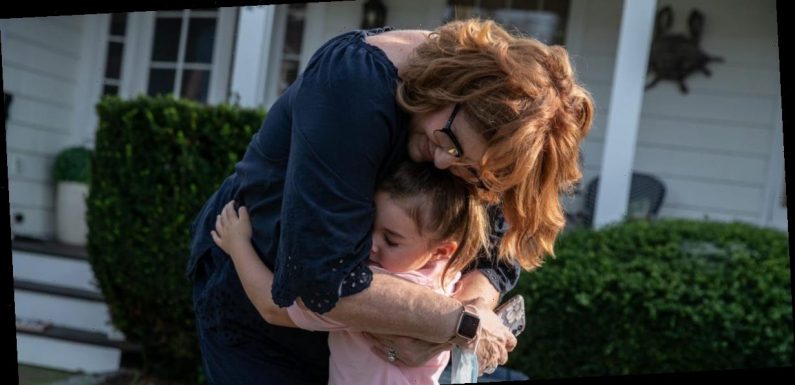
- The CDC released its first guidance for fully vaccinated people on Monday.
- Fully vaccinated people can visit unvaccinated family members from a single household indoors, provided no one who’s unvaccinated is “at risk of severe COVID-19.”
- The guidance only pertains to people who’ve given their shots several weeks to take effect, though.
- Visit the Business section of Insider for more stories.
After several days of delays last week, the Centers for Disease Control and Prevention has issued its first guidance on what kinds of privileged activities people who’ve been fully vaccinated against COVID-19 can safely do.
The guidelines, issued Monday, allow for unmasked indoor dinner parties among fully vaccinated crews, and they also endorse more hugs and less distance between vaccinated and unvaccinated extended family members — with some caveats.
“The recommendations issued today are just a first step,” CDC Director Rochelle Walensky said at a White House COVID-19 press briefing Monday morning, announcing the new guidance. “Fully vaccinated people can visit with other fully vaccinated people indoors without wearing a mask or physical distancing.”
But, Walensky added, it’s important for vaccinated people to “please keep wearing a well-fitting mask” in most other settings.
The new CDC recommendations also stress that “fully vaccinated” doesn’t kick off when a shot hits your arm.
For people who’ve gotten Moderna or Pfizer’s two-dose vaccines, it takes about two weeks after the second shot to be considered “fully vaccinated,” while for Johnson & Johnson’s new one dose vaccine, protection is considered “full” two weeks after that single shot, according to the CDC.
Here are the three perks that fully vaccinated people can indulge in, according to the CDC:
- Be indoors with other fully vaccinated people, without masks or distancing.
- Be indoors with unvaccinated people “from a single household who are at low risk for severe COVID-19,” without masks or distancing.
- If exposed to someone with COVID-19, vaccinated people also don’t need to test or quarantine, if they remain asymptomatic, the CDC said.
Outside of these three scenarios, the CDC is still stressing that vaccinated people should maintain the precautions that have become standard over the past year.
That means wearing a well-fitted mask in public, and taking extra care when around other people who are at risk of severe COVID. Vaccinated people should also still get tested if they experience COVID-19 symptoms. (While unlikely, it’s still possible to get the coronavirus after you’ve been vaccinated.)
Vaccinated grandparents can safely hug their grandkids, without masks
For vaccinated grandparents who’ve been hungering to visit the grandchildren they’ve only seen on Zoom for many months, or for vaccinated mothers wanting to hug their kids from other households again, this is a major relief.
It’s a first hint at what life might look like once much more of the country has been inoculated.
“Fully vaccinated grandparents can visit indoors with their unvaccinated healthy daughter and her healthy children without wearing masks or physical distancing, provided none of the unvaccinated family members are at risk of severe COVID-19,” the guidance said.
For fully vaccinated people, some indoor dinner parties are OK
Vaccinated people can also start planning safe, indoor dinner parties with their vaccinated friends.
“If you are fully vaccinated, it is likely a low risk for you to invite other fully vaccinated friends to dinner inside your private residence,” the CDC said.
However, the guidance says to avoid medium- and large-sized in-person gatherings which include unvaccinated people from multiple households.
“Though the risk of disease may be minimal to the fully vaccinated person themselves, they should be mindful of their potential risk of transmitting the virus to others if they become infected,” the guidance said.
The Biden Administration has promised to have enough vaccinations available for every US adult by the end of May. (The vaccines are available for free to all US adults, whether they’re insured or not, according to federal law).
Get the latest coronavirus business & economic impact analysis from Business Insider Intelligence on how COVID-19 is affecting industries.
Source: Read Full Article